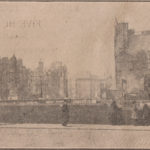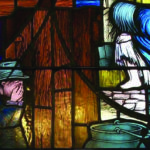Over the last four decades, stamp-collecting, also known as “philately,” has been undergoing a slow but sure death. This has been mirrored by a decline in letter-writing and a similar wane in the use of cursive writing. Consequently, the hobby of stamp-collecting, so beloved by generations of schoolchildren, is mostly the preserve of people above the age of 60. Ireland’s Great … [Read more...] about You’ve Got Mail: Irish History From Stamps
Quinnipiac
Frederick Douglass and Irish Home Rule
Born a slave, Frederick Douglass died as a champion of human rights, and Ireland played an important role in his political awakening. In 1845, Ireland provided a safe refuge to Frederick Douglass, a 27-year-old “fugitive” slave from America. Douglass described his four months in the country as the “happiest times” in his life and the Irish people as the most “ardent” … [Read more...] about Frederick Douglass and Irish Home Rule
Explore the First Weekly Irish Times Published After the Rising
April 29, 2016
The first issue of The Weekly Irish Times published following the Easter Rising has been digitized for free by Ireland’s Great Hunger Institute at Quinnipiac University. The issue, covering the weeks of April 29, May 6, and May 13, calls the Rising “The Darkest Week in the History of Dublin.” A subheading on page one reads “An Orgie [sic] of Fire and Slaughter.” The 12-page … [Read more...] about Explore the First Weekly Irish Times Published After the Rising
The Grey Nuns at Quinnipiac
A new exhibit on the Grey Nuns hosted by Ireland’s Great Hunger Institute at Quinnipiac University opened April 1. A private event launching the exhibit took place on March 31 with the Canadian Consul General, Quebec Delegate to New England, and the Irish Consul General of New York all in attendance. The long overdue exhibit shines a light on the untold number of English and … [Read more...] about The Grey Nuns at Quinnipiac
Last Word:
Great Hunger in the North
A Window on the Past: Historian Christine Kinealy debunks the myth that Ulster was untouched by the Great Hunger.
The myth of Ulster exceptionalism and affluence has roots in the Great Hunger itself. As early as 1849, Protestant loyalists were laying the foundation for a binary, two-nation view of the Famine. Objecting to a new tax that was to be levied on all parts of … [Read more...] about Last Word:
Great Hunger in the North





